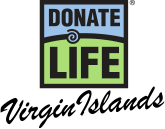Donation Process
How It Works
Each donor and each family can experience a unique donation process. Highly trained professionals assist the donor and their family in each phase of the donation process. The information below is a basic guide to what to expect during the process
The Process
When a person who has suffered a severe brain injury, caused, for example, by an accident, trauma, lack of oxygen, among other conditions, doctors work hard to save the patient’s life.
Despite the best efforts of the medical team, sometimes a complete and irreversible loss of brain function occurs. At that time, the patient is declared clinically and legally deceased.
The doctors in charge of the patient’s care will perform the necessary tests to determine the diagnosis of brain death. These tests are performed in accordance with hospital policies and following the recommendations of the brain death determination guidelines from the Academy of Neurologists. If the tests show positive results for the diagnosis of brain death, the diagnosis is made. Only then does donation become an option.
Hospital staff identify a potential donor and generate a referral to the organ recovery organization (OPO), which in the case of the US Virgin Islands, is LifeLink of Puerto Rico. LifeLink staff evaluates the potential referral for donation.
The doctors in charge of the patient’s care will stabilize them through medication and keep them as stable as possible.
LifeLink will meet with the family to discuss the opportunity to make a Gift of Life through donation. If the person had registered as an organ donor, their decision will be shared with the family. If, on the other hand, the person has not registered as a donor, it will be up to the family to make the decision. The decision will then be documented, and the donation plans will be confirmed to the family. The medical and social history will also be reviewed with the family.
Once all the documentation is completed, tests are performed to identify people on the transplant waiting list who are compatible with the donor. Factors in this process include blood type, weight, height, severity of the disease of the person waiting for a transplant, as well as the amount of time they have waited, is taken into consideration. Once people compatible with the donor are identified, the recovery phase begins.
LifeLink will meet with the family to discuss the opportunity to make a Gift of Life through donation. If the person had registered while alive as an organ donor, the family will be informed about the process. If, on the other hand, the person has not registered as a donor, it will be up to the family to make the decision. The decision will then be documented, and the donation plans will be confirmed to the family. The medical and social history will also be reviewed with the family.
Recovery of organs and tissues is carried out in the operating room through a surgical procedure. Once the organ and tissue donation process is completed, funeral arrangements can be carried out as planned.
Myths vs. Donation Facts
- I cannot be a donor because i want open casket service.
Organ donation is done under sterile surgical conditions in an operating room. The body is treated with great respect. Organ or tissue donation does not disfigure the body or interfere with an open casket funeral if the family wishes.
- Donation will be expensive for my family.
Costs related to organ and tissue donation will be covered by lifelink. You will not be financially responsible for any aspect of the donation process. However, medical care up to the point of donation, funeral arrangements and expenses remain the responsibility of the family members or persons in charge of their estate.
- When i arrive at the hospital, if they know that i want to be a donor, they will refrain from giving me treatment and will not try to save my life.
Health professionals will do everything possible to save your life. The doctors working to save your life are not the same doctors who are involved in the donation process. Only after every attempt has been made to save your life will donation
- My religion does not support organ and tissue donation.
Major religions either fully support donation as an act of human charity in accordance with religious doctrines or leave the decision to the individual. No major religion opposes organ and tissue donation. If you have questions about your faith position, we encourage you to consult with your spiritual director or religious leader.
